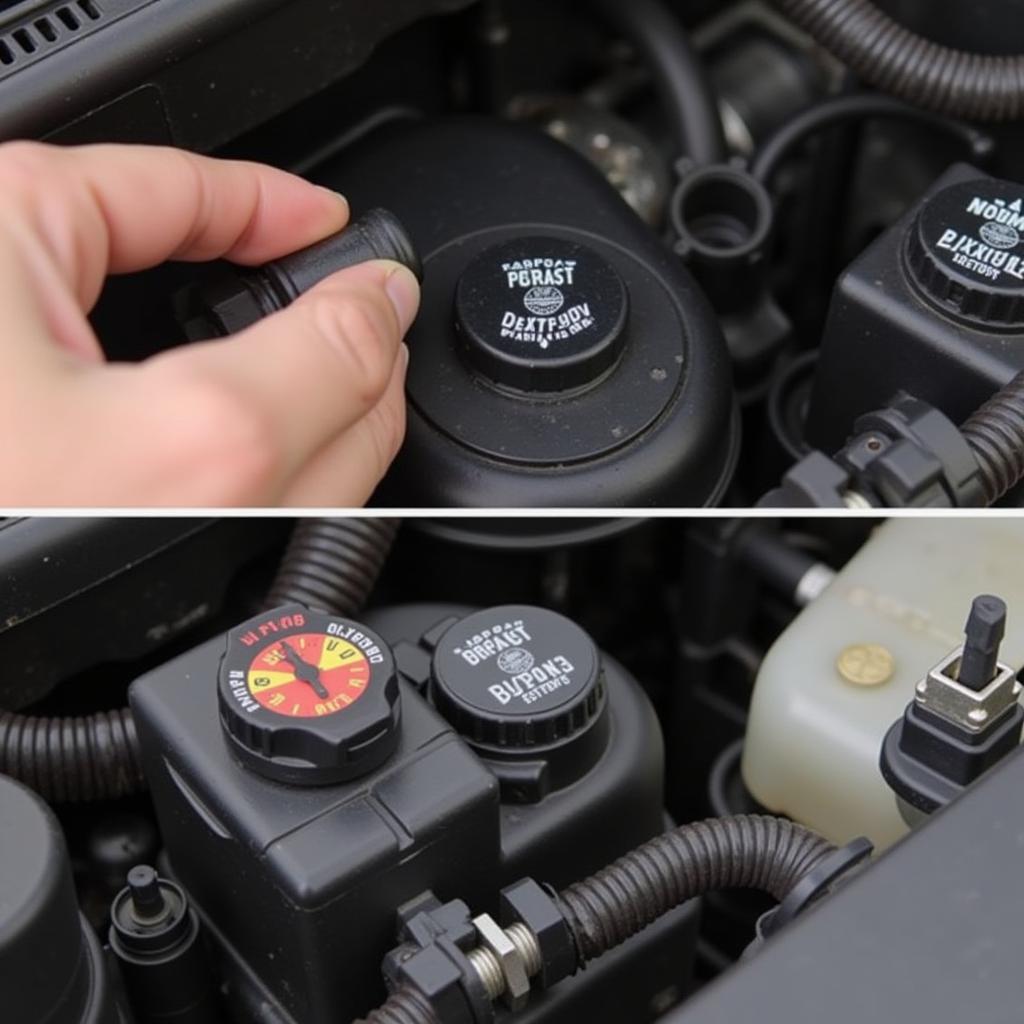A malfunctioning winch brake can bring your off-roading adventures to a grinding halt. If you’re facing the dreaded “warn winch brake not working” issue, don’t fret! This guide will walk you through common causes and solutions, helping you get your winch back in action.
Understanding Your Warn Winch Brake
Before we dive into troubleshooting, it’s crucial to understand how your Warn winch brake operates. Most Warn winches employ an automatic mechanical brake system. When the winch motor isn’t actively pulling cable in or out, this brake automatically engages, preventing the drum from spinning freely and holding your load securely.
Common Causes of Brake Failure
Several factors can cause your Warn winch brake to fail. Here are some of the most common culprits:
1. Worn Brake Components
Like any mechanical brake system, Warn winch brakes rely on components that wear down over time. Excessive use, exposure to the elements, and lack of maintenance can accelerate wear and tear on the brake shoes, disc, and springs.
2. Contaminated Brake Surfaces
Mud, dirt, water, and other off-road debris can find their way into your winch’s brake assembly. Contamination interferes with the friction needed for effective braking, leading to slippage or complete failure.
3. Improper Adjustment
warn 8274 brake mechanisms often have an adjustment mechanism. If this adjustment is off, the brake might not engage fully, resulting in a “warn winch brake not working” scenario.
4. Internal Damage or Corrosion
Internal components of the brake system, like the brake shaft or the activation mechanism, can suffer from damage or corrosion, especially with prolonged exposure to harsh environments or inadequate maintenance.
Troubleshooting Steps
Follow these steps to diagnose and potentially fix your “warn winch brake not working” problem:
1. Inspect for Visible Damage or Contamination:
- Begin by visually inspecting your winch. Look for any signs of physical damage, loose parts, or excessive dirt and debris buildup around the brake assembly.
2. Check Brake Adjustment:
- Consult your Warn winch owner’s manual for specific instructions on how to access and adjust the brake. Using the provided guidelines, ensure your brake is adjusted according to the manufacturer’s specifications.
3. Test Winch Operation:
- After inspection and any necessary adjustments, carefully test your winch in a controlled environment. Attempt to spool cable in and out while observing the brake’s engagement when the motor stops.
4. Seek Professional Assistance:
- If your “warn winch brake not working” issue persists after these steps, it’s best to consult a qualified mechanic or contact Warn customer support for further assistance. Internal brake problems often require specialized tools and expertise.
Preventive Maintenance Tips
- Regular Cleaning: Regularly clean your winch, paying special attention to removing dirt and grime from the brake assembly.
- Lubrication: Apply appropriate lubricant to the designated lubrication points on your winch, as outlined in your owner’s manual.
- Inspection: Periodically inspect your winch’s brake components for wear and tear. Replace worn parts promptly to prevent unexpected failures.
- Professional Servicing: Consider professional winch servicing at recommended intervals, especially if you frequently use your winch in demanding conditions.
Expert Insight
“Many winch brake issues stem from preventable causes like lack of maintenance and improper cleaning,” says veteran off-road mechanic, John Riley. “Regular inspection and cleaning can significantly extend the life of your winch brake and prevent costly repairs down the line.”
FAQs about Warn Winch Brakes
1. How does a Warn winch brake work?
How does a warn winch brake work? It works automatically. When you power off the winch, a spring-loaded mechanism engages a brake shoe against the drum, preventing it from spinning.
2. Can I use my Warn winch if the brake is not working?
Using a winch with a faulty brake is extremely dangerous and not recommended. Without a functioning brake, the load can freewheel, potentially causing injury or damage.
3. How often should I service my Warn winch brake?
Warn recommends servicing your winch, including the brake system, at least once a year or more frequently if subjected to heavy use or harsh environments.
4. Can I replace my Warn winch brake parts myself?
While some mechanically inclined individuals may be able to replace brake components, it’s generally recommended to have a qualified technician perform these repairs to ensure proper installation and function.
5. Where can I find replacement parts for my Warn winch brake?
Warn winch brake parts can be purchased from authorized Warn dealers, online retailers specializing in off-road equipment, or directly from Warn’s website.
Conclusion
A “warn winch brake not working” situation can be frustrating, but understanding its common causes and troubleshooting steps empowers you to address the issue effectively. By prioritizing regular maintenance and seeking professional help when needed, you can keep your Warn winch in top shape, ensuring safe and successful off-road adventures for years to come.

